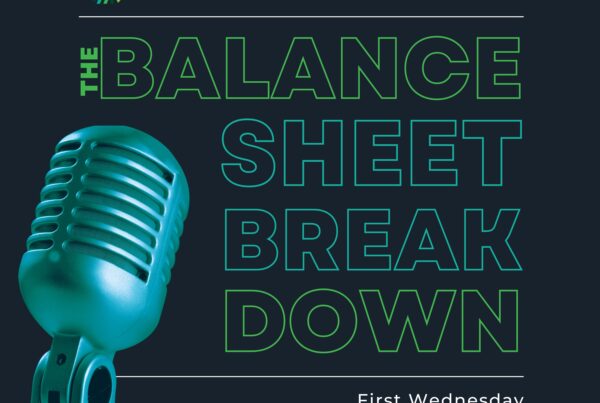Summary
On June 5, 2019, Illinois enacted its 2019 budget bills that result in wide-ranging changes to Illinois tax laws, including a phase-out of the Illinois franchise tax, a corporate income tax rate increase, implements a graduated personal income tax rate structure, introduces tax amnesty programs, and imposes a marketplace facilitator remote seller sales/use tax nexus statute. The corporate and personal income tax rate changes require Illinois voters to approve Senate Joint Resolution Constitutional Amendment No. 1, which will be placed on the general election ballot in November 2020.
Details
Illinois Franchise Tax Repeal
The Illinois franchise tax is administered by the Illinois Secretary of State. The tax has been problematic for many taxpayers for many years (and has been a target for repeal by the Illinois business community for decades). However, beginning with the 2020 tax year, the franchise tax starts to be phased out over a four-year period under the 2019 Illinois budget bill. The phase-out will occur by exempting certain dollar amounts that would otherwise be due under the franchise tax statute as follows:
2020: The first $30 of franchise tax liability is exempt
2021: The first $1,000 of franchise tax liability is exempt
2022: The first $10,000 of franchise tax liability is exempt
2023: The first $100,000 of franchise tax liability is exempt
2024: Illinois franchise tax is fully repealed
Tax Amnesty Programs
The budget bill enacts two Illinois tax amnesty programs. The first will apply only to taxpayers with delinquent franchise taxes or license fees due to the Illinois Secretary of State. The franchise tax amnesty program will commence October 1, 2019, and will run through November 15, 2019. The program applies to franchise taxes or license fees due for periods ending after March 15, 2008, and on or before June 30, 2019. Interest and penalties will be waived.
A second tax amnesty program was also enacted by the budget bill, and it applies to taxes administered by the Illinois Department of Revenue. The general tax amnesty program will run during the same period as does the franchise tax amnesty program, and it will apply to tax periods ending after June 30, 2011, and before July 1, 2018. Interest and penalties will be waived.
FDII Addition Modification
The budget bill does not enact any changes to the Illinois corporate income tax dividends received deduction. However, it does enact an addition modification for the federal foreign derived intangible income (FDII) deduction under IRC Section 250(a)(1)(A), effective for tax years beginning after December 31, 2018.
Marketplace Facilitator Nexus
Beginning on January 1, 2020, a marketplace facilitator exceeding Illinois’ economic nexus thresholds will be considered a “retailer,” which will require the marketplace facilitator to collect sales tax on taxable transactions made through its marketplace. Economic nexus will be established if the marketplace facilitator and marketplace seller’s cumulative sales of tangible personal property into Illinois during the preceding 12-month period marketplace facilitator and marketplace sellers exceeded gross receipts of $100,000, or 200 separate transactions. The marketplace facilitator is responsible for collecting and remitting tax on all taxable sales into Illinois, made through its marketplace, on behalf of its marketplace sellers. Conversely, marketplace sellers are not responsible for collecting and remitting tax on transactions made through the marketplace.
Illinois Tax Credits
The Illinois budget bill also enacts a number of changes to Illinois income tax credits. The legislation creates several new tax credits, including the Enterprise Zone Construction Jobs tax credit, High Impact Business Construction Jobs tax credit, New Construction EDGE credit, and the River Edge Construction Jobs tax credit. These new tax credits are equal to up to 75 percent of the incremental income tax attributable to eligible construction jobs and are effective for tax years beginning on or after January 1, 2021. Eligibility requirements may vary based on the corresponding programs as outlined above, as well as the physical location of the project site.
Excess Business Loss Deduction for Trusts and Estates
For tax years beginning after December 31, 2018, and before January 1, 2026, S.B. 689 provides a deduction to trusts and estates that have a disallowed excess business loss under IRC Section 461(l)(1)(B), which treats such a loss as a net operating loss (NOL) carryforward. Because Illinois does not allow trusts and estates to carryforward NOLs, the amendment enacted by S.B. 689 prevents a trust’s or estate’s excess business loss from being permanently disallowed.
Income Tax Rate Changes
In July 2017, Illinois increased its corporate income tax rate to 7 percent (from 5.25 percent). As part of the state’s 2019 tax legislation, the corporate rate has been increased again to 7.99 percent, effective for tax years beginning on or after January 1, 2021. Assuming Illinois voters approve the Illinois constitutional amendment in November 2020, beginning with the 2021 tax year, the total Illinois corporate income tax rate, when combined with the 2.5 percent personal property replacement tax, will be 10.49 percent.
In addition, the current Illinois flat individual income tax rate of 4.95 percent will be replaced with a graduated personal income tax rate structure for tax years beginning on or after January 1, 2021, if approved by Illinois voters. The Illinois graduated rate structure for individuals, trusts and estates will be:
For Joint Filers: |
|
| Illinois Net Income | Tax Rate |
| $0 – $10,000 | 4.75 percent |
| $10,001 – $100,000 | 4.9 percent |
| $100,001 – $250,000 | 4.95 percent |
| $250,001 – $350,000 | 7.75 percent |
| $350,001 – $1,000,000 | 7.85 percent |
| Over $1,000,000 | 7.99 percent |
For Non-Joint Filers: |
|
| Illinois Net Income | Tax Rate |
| $0 – $10,000 | 4.75 percent |
| $10,001 – $100,000 | 4.9 percent |
| $100,001 – $250,000 | 4.95 percent |
| $250,001 – $350,000 | 7.75 percent |
| $350,001 – $750,000 | 7.85 percent |
| Over $750,000 | 7.99 percent |
While the Illinois personal income tax rate structure enacted by S.B. 687 is graduated for most taxpayers, for joint filers with net income over $1,000,000 and non-joint filers with net income over $750,000, the maximum 7.99 percent rate will be imposed as a flat rate on all of the individual’s, trust’s, or estate’s net income.
WG Observations
- The phase-out and eventual repeal of the Illinois franchise tax is a welcome development for Illinois businesses. The franchise tax is not a well-understood tax, and it has created compliance burdens and questions for taxpayers over the years.
- The replacement of the Illinois flat-rate personal income tax on individuals, trusts and estates with a graduated rate structure and the increase in the corporate income tax rate still depends on voter approval in November 2020.
- Taxpayers affected by the enactment of these laws should consult with their financial statement auditor and tax advisor to evaluate and determine the potential financial statement implications under ASC 740, including the impact on current and deferred taxes, uncertain tax benefits, and disclosures.




